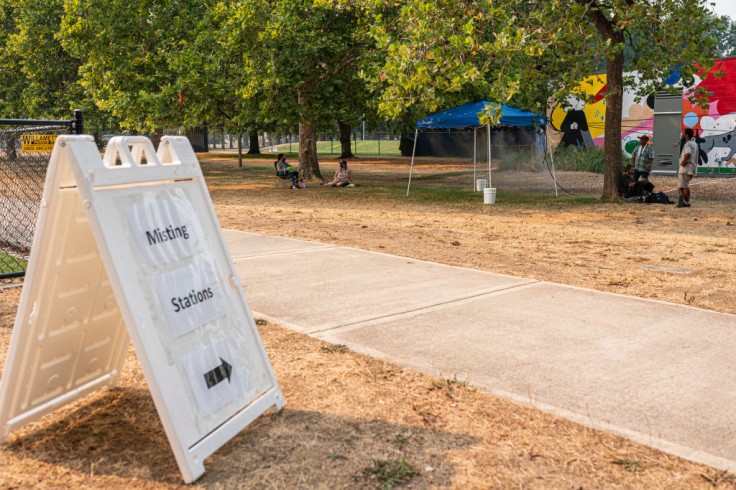
The threat of heatwaves resulting from climate change has been increasing in the last few years, and the risks are even greater for pregnant women who do not get enough advice from their doctors about dealing with the intense temperatures.
According to NPR, those in the science and medical field are discovering that heatwaves could lead to early labors, stillbirths, or low birth weight in babies, as well as pregnancy complications and maternal death. However, the experts are also discovering that some pregnant women are more vulnerable than others.
"Pardon the pun, but it really is a bun in a really hot oven and that's a dangerous scenario," Dr. Nathaniel DeNicola of the American College of Obstetricians and Gynecologists (ACOG) told NPR.
In Fresno, California, 13.5 percent of Black pregnant women struggled with the heatwave in 2020 compared to just 9 percent of Caucasian moms. Fresno has fewer trees and more pavement that takes on the heat, making outdoor activities more challenging for pregnant moms who have to go to work, run errands, and watch their children play in the park.
For Every 10 Degrees of Heat
A study of the heatwave in California in 2010 revealed that pregnant mothers have an eight percent risk of going into early labor for every 10 degrees of extra heat. That risk apparently doubles for Black mothers. With climate change, heatwaves are expected to grow in intensity and become a more common occurrence year after year. However, some doctors are still not advising their patients about what could happen if they suffer from a heatwave.
The U.S. Centers for Disease Control and Prevention also conducted a study showing that Black and Indigenous people have higher risks of developing cardiovascular health issues and hospitalizations due to the heatwave. Because of this research, the Biden administration has issued a directive through the Occupational Safety and Health Administration for risk mitigations for those who work outdoors.
Evidence also showed that those who live in cramped spaces have warmer homes that could exacerbate their underlying health issues. In the U.S., these types of living spaces are mostly among communities of color.
DeNicola urged OBYGNs to discuss the dangers of a heatwave with pregnant moms, especially in women of color. If they do not know the issues themselves, the healthcare system should educate women's health providers.
ACOG has released guidelines for doctors to start talking about climate change and its impact on their vulnerable patients. DeNicoloa believes these guidelines should be implemented across various health facilities.
Navigating the Heatwave
According to Dr. Adelaide Nardone, an OBGYN from Rhode Island, pregnant mothers are automatically intolerant to the heat, so it would be good to have a cool, damp washcloth ready for applying on the neck the forehead. The doctor recommended drinking more fluids as well, especially drinks that have electrolytes to prevent muscle cramps.
Pregnant mothers should exercise during the cooler times of the day and must have a water-filled squirt bottle with them if they have to be outdoors. Before they do their exercises, pregnant moms are advised to check with their healthcare provider to get proper guidance on the right exercise regimen to follow as their baby belly grows.
If pregnant moms exhibit fatigue, dizziness, lightheadedness, weakness, and excessive thirst, they should find a cooler space indoors and drink cool water to replenish their dehydrated state. As much as possible, pregnant mothers should wear loose and airy clothes for their comfort. If they start vomiting or feel that their symptoms are getting worse after an hour, they should seek medical treatment as soon as possible.
Related Article: More Babies Born With Congenital Syphilis in 2020, Study Reveals